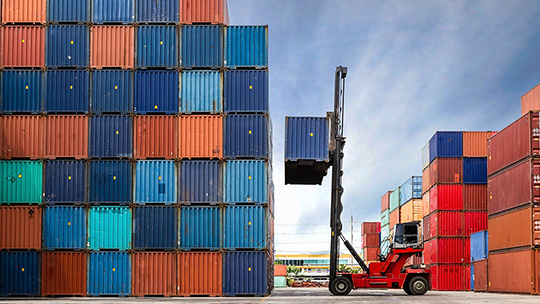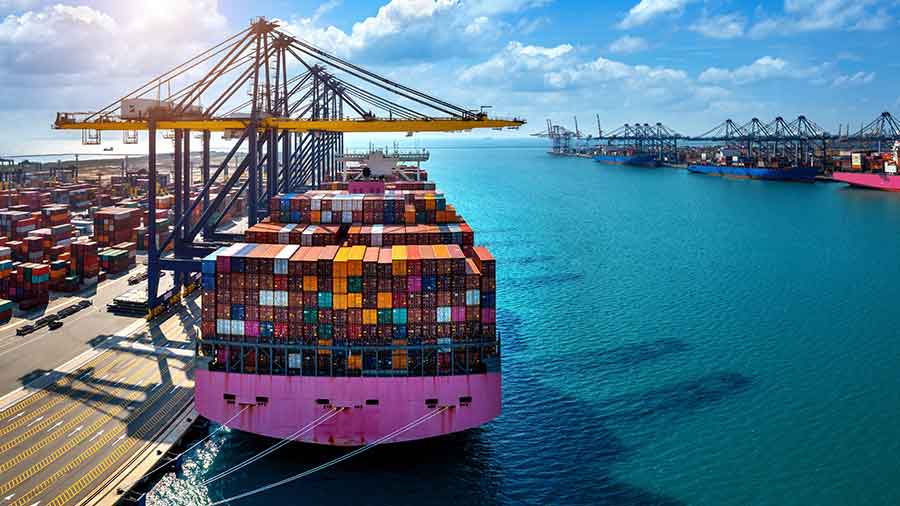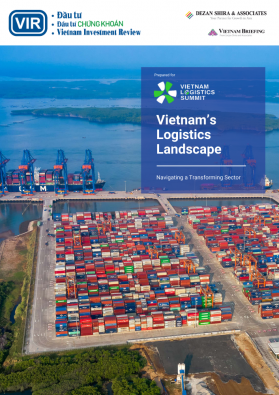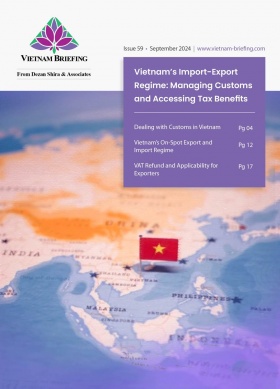Op-Ed: Trump 2.0 Will Benefit Vietnam – But Only if Trade Surpluses Avoid Populist Backlash
In this op-ed, Marco Förster discusses how Vietnam could gain from U.S.-China tensions under a second Trump presidency, yet may risk setbacks if Trump’s populist policies target Vietnamese exports.
As former U.S. President Donald Trump returns to power, Vietnam, a burgeoning center for manufacturing and a vital U.S. trading partner, could stand to benefit considerably from heightened U.S.-China tensions. Trump’s plans to impose a 60% tariff on Chinese imports would make alternative production hubs in Southeast Asia even more attractive for businesses, and Vietnam, with its expanding industrial capacity, is in a prime position to continue welcoming these relocations. Yet, if Trump’s populist rhetoric and protectionist policies expand to target Vietnamese exports, similar to how Mexico or the European Union were framed in his campaign rhetoric, this opportunity could quickly transform into Vietnam’s largest vulnerability.
Vietnam’s position in Southeast Asia’s emerging industrial landscape
Over the past decade, Vietnam has solidified its reputation as a manufacturing powerhouse, drawing billions in FDI from companies seeking to diversify production outside China. During this period, Vietnam rose to become ASEAN’s export champion, and more notably, almost 40% of all ASEAN exports to North America are from Vietnam.
It is also not all textiles and footwear anymore, as Vietnam’s manufacturing sector rapidly climbs up the value chain. The semiconductor and automotive industries are two key areas where this shift is especially evident.
The semiconductor industry offers Vietnam a particularly promising path forward. In response to U.S. restrictions on Chinese technology, companies like Samsung and Intel have ramped up their investments in Vietnam, adding capacity to an industry that is projected to reach US$100 billion in revenue by 2050. With strong government backing and a clear strategy, Vietnam’s semiconductor industry is positioning itself as a significant player in the global tech supply chain.
Too invested to target: Trump and Musk’s business bonds with Vietnam
The majority of the Vietnamese public has a favorable view of Trump for his tough stance on China. And Trump seems to like Vietnam. Not only did Trump publicly oppose the Vietnam War as early as the 1980s—he also visited the country twice during his first presidency—once for the APEC Summit and again for the 2019 North Korea–U.S. Summit Hanoi. And on top of that, why would he target Vietnam if he and his closest allies are personally invested in the country?
Trump’s favorable view of Vietnam is more than just rhetoric—his organization has made significant investments in the country. In collaboration with Kinh Bac City Development Holding Corporation (KBC), the Trump Organization recently signed an agreement to build a US$1.5 billion complex in Hung Yen Province in Northern Vietnam. This development includes a hotel, a luxury golf course, and a residential area, all set to meet Trump’s brand standards of high-end service and exclusivity. Trump himself, alongside his son and Executive Vice President of the Trump Organization, Eric Trump, attended the signing ceremony, highlighting his direct involvement and enthusiasm for Vietnam as a lucrative market.
Additionally, Trump’s closeness with Elon Musk, who was a prominent supporter of his recent campaign, and likely will be one of the President’s closest advisors, brings another layer to the relationship. Musk’s SpaceX is making Vietnam a key production hub for its Starlink satellite internet project, with suppliers relocating production from Taiwan to Vietnamese factories to mitigate geopolitical risks.
These investments underscore both Trump’s and Musk’s trust in Vietnam’s strategic value, from tourism to tech. Vietnam’s position as a favored nation by both Trump and Musk could bolster its role in global supply chains—provided it maintains a balanced trade relationship and avoids attracting populist criticism.
Trump’s potential impact on Vietnam-U.S. economic relations
Vietnam has been careful to maintain stable diplomatic relations with the U.S., culminating in a comprehensive strategic partnership signed in 2023, the highest-level partnership Vietnam offers. However, Trump’s well-known populist appeal could place Vietnam in a precarious position. His “America First” policies prioritize domestic production, and in his first term, Mexico faced such pressure as a perceived “job stealer.”
Vietnam, like Mexico, is a major U.S. trading partner, and the U.S. remains Vietnam’s largest export market. In fact, after China and Mexico, Vietnam is the country with the third-largest trade surplus over the U.S. An overly protectionist approach could hinder Vietnamese exports and spark disputes over these surpluses, mirroring the tension that emerged with Mexico. Should Trump turn his rhetoric towards Southeast Asia, Vietnam’s advantageous position could become a double-edged sword.
The country is at a strategic crossroads here, and a careful diplomatic approach is essential. Vietnam should not draw undue attention to its considerable trade surplus with the U.S. The role model here is that ‘China also rose quietly’. With the uptick in Chinese goods being routed through Vietnam, many to circumvent tariffs, sometimes under questionable rules of origin or even with fake Made in Vietnam labels, Vietnam needs to tread carefully. To avoid too much backlash from across the Pacific, Vietnam’s Ministry of Industry and Trade (MoIT) is actively working to establish stricter criteria for Vietnamese-origin products. These guidelines may focus on goods genuinely produced in Vietnam from raw materials, or those transformed through substantial processing that genuinely alters their nature. Products that undergo only minimal processing might no longer qualify as Made in Vietnam, which is a significant shift. Many China-derived goods only undergoing last-mile assembly or packaging in Vietnam might soon not be enough.
Vietnam must continue to position itself as a reliable trade partner and ensure transparency in trade practices. Vietnam’s reputation as a “friend” to the U.S., as Trump expressed in his recent congratulatory call with Vietnam’s Communist Party leader To Lam, should be cultivated with continued openness and cooperation. Additionally, Vietnam’s participation in regional and international organizations can help shield it from potential populist backlash by maintaining its image as a responsible, cooperative nation.
A calculated opportunity with caution
The return of Trump to the White House may initially look promising for Vietnam, providing a renewed push for investment and business migration from China. However, Vietnam must strategically manage its economic ties with the U.S. to avoid becoming a target of populist policies. As long as Vietnam continues to present itself as a cooperative, beneficial partner to the U.S., it stands to gain much from the shifting landscape of global trade under the Trump administration.
About Us
Vietnam Briefing is published by Asia Briefing, a subsidiary of Dezan Shira & Associates. We produce material for foreign investors throughout Asia, including ASEAN, China, and India. For editorial matters, contact us here and for a complimentary subscription to our products, please click here. For assistance with investments into Vietnam, please contact us at vietnam@dezshira.com or visit us at www.dezshira.com.
Dezan Shira & Associates assists foreign investors throughout Asia from offices across the world, including in Hanoi, Ho Chi Minh City, and Da Nang. We also maintain offices or have alliance partners assisting foreign investors in China, Hong Kong SAR, Dubai (UAE), Indonesia, Singapore, Philippines, Malaysia, Thailand, Bangladesh, Italy, Germany, the United States, and Australia.
- Previous Article Vietnam’s Top 500 Enterprises in 2024: New Report Findings
- Next Article Avoiding PE Risks in Vietnam: Best Practices for Foreign Representative Offices
































